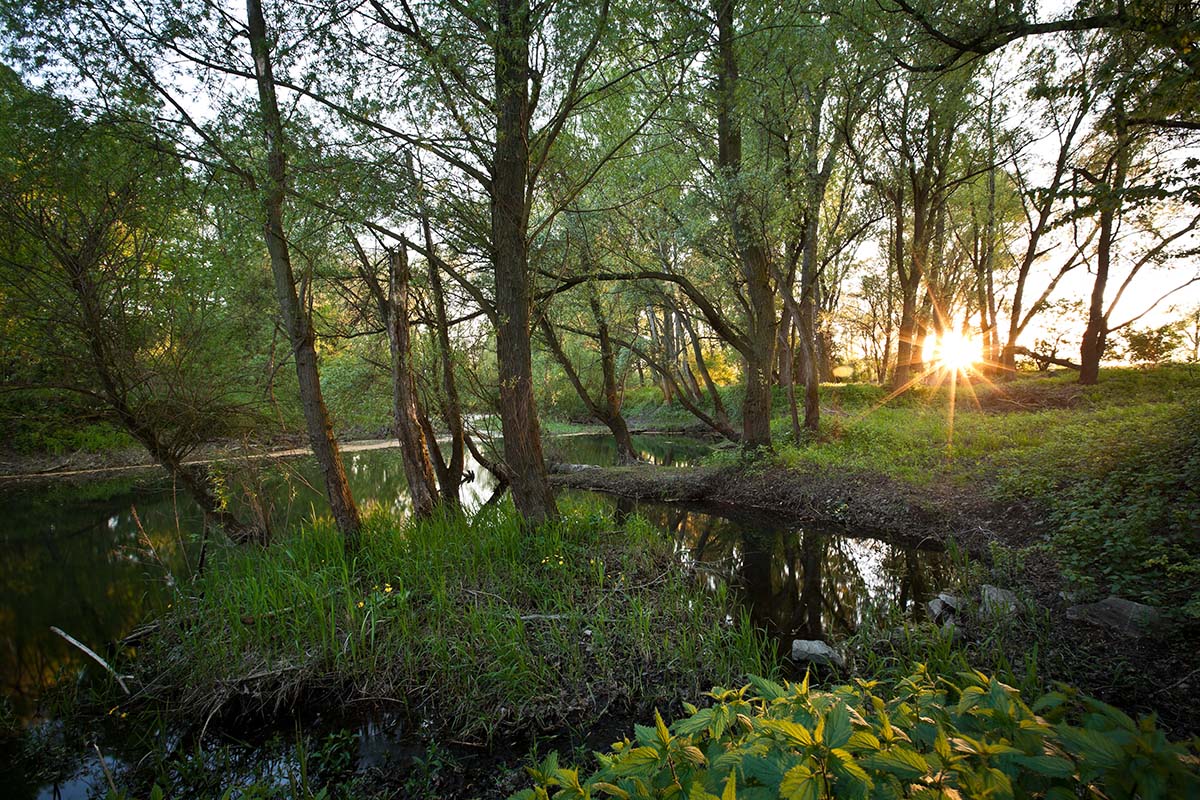
In general a riparian property owner refers to a landowner whose property borders a natural waterway. Each state defines a set of rights on how property owners can access and use this water and the land beneath the water.
In Indiana, a “riparian owner” means the owner of land, or the owner of an interest in land sufficient to establish the same legal standing as the owner of land, bound by a waterway (see 20220209-IR-312220025NRA for more on riparian owners, rights, and zones). A “waterway” includes rivers, streams, creeks, runs, channels, ditches, lakes, reservoirs, or embayments. For example, if you live next to a natural stream, it is likely you are a riparian owner. Sometimes the riparian rights on a property may be separated from the land adjacent to waterways in real estate transactions if former property owners would like to maintain only the riparian rights. Regardless of if you are the riparian owner, it is important to take steps to preserve and protect the water and surrounding ecosystem near your property.
What should riparian owner do to protect the water near their property?
It is important for riparian owners to be especially vigilant of proper use and disposal of chemicals, yard waste, trash, or pet waste that may run off into these public waters. Some waters may be part of the local drinking water supply and pollution of them results in further clean up costs for local utilities.
In addition, the riparian zone, the narrow transitional zone between land and water, is an important part of the broad ecosystem. These zones often contain plants which thrive in damp conditions and can help mitigate flood risk, reduce bank erosion, and offer a habitat for diverse animal species. Being mindful of native and invasive plant populations and understanding streambank stabilization principles are key topics every riparian owner should learn. (In Marion County, Indiana, the Marion County Soil and Water Conservation District offers free workshops and resources).
In many cases riparian owners border public freshwater lakes, which are held in trust by the state of Indiana for the use of all citizens. While riparian owners cannot always control what happens on a public lake, both the public and riparian owners should work together to protect and enjoy these water resources and ecosystems!
